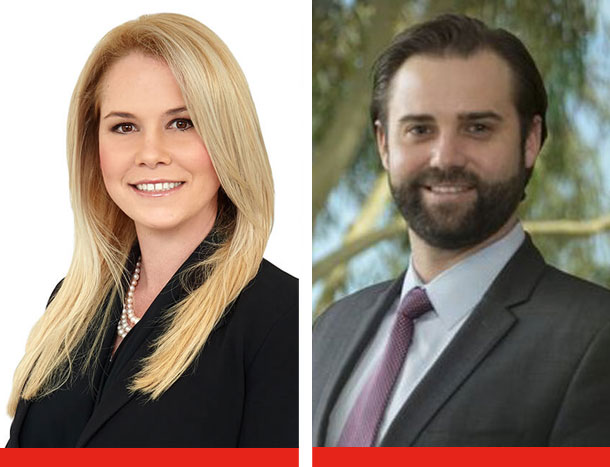Defense Institute’s Fall Seminar to highlight revival statute claims
Articles
Attorney Spotlight
View more from News & Articles or Primerus Weekly
By Brian Cox
“Insurance makes the world go round,” says Sacramento attorney Eric Brenneman with an enthusiastic smile.
It’s not a surprising perspective from the co-chair of Primerus’ Insurance Coverage and Bad Faith Practice Group, who has spent more than a decade specializing in advising and litigating coverage issues for public entities.
“I think insurance is one of those things that crosses over every practice field,” says Brenneman, a graduate of University of Pacific, McGeorge School of Law. “I think whether or not you practice in insurance or you’re a front-line litigator for whatever your practice is, insurance is something really good to know about.”

Which is precisely why Brenneman is confident there should be wide interest in the Primerus™ Defense Institute’s 2023 Fall Seminar set to be held in Chicago, September 18-19.
He and his co-chair, Los Angeles attorney Catherine Naltsas, are putting the finishing touches on the conference, which is a cross-over event with the Professional Liability Defense Practice Group. It is the second in-person gathering since the pandemic subsided and Naltsas says attendance is expected to be healthy.

“Because the world has opened up, carriers are allowing their clients to travel again,” Naltsas says. “We’re seeing a lot more people from the client side attending these conferences, which is great.”
Opening with cocktails and dinner the night before, the one-day program will provide attendees the chance to reconnect with colleagues and to develop new relationships. Currently, panel discussions are planned that will explore issues surrounding additional insured coverage; directors’ and officers’ insurance (D&O) and errors and omissions insurance (E&O); and cyber liability.
Brenneman and Naltsas will lead a panel looking at revival statutes across the country in matters of sexual assault and molestation claims.
“Eric and I thought we would talk about something that’s relevant and that we do a lot of,” says Naltsas, who is with Lynberg & Watkins, APC. “These claims touch on all kinds of insurance coverage issues because they involve allegations dating back to the 1980s and 1970s. You’re dealing with things that we used to see in the asbestos years where you have missing policies, dead witnesses, and coverage that is completely paid out.”
Naltsas began working on such cases in 2020, soon after California extended the statute of limitations for allegations of childhood sexual assault. She helps religious institutions defend against claims dating back many decades. Defending these claims and finding the applicable insurance policies has, at times, involved gaining access to the church’s attic and/or storage, and painstakingly searching through dusty boxes of documents, looking for a “needle in a haystack.” In one case where the actual insurance policies were destroyed decades ago, Naltsas established the existence of insurance coverage using old pay stubs evidencing payments to an insurance company as far back as 1979.
“I think the cases are really interesting,” she says. “There are strong defenses. It’s incredibly rewarding and interesting and valuable work.”
She and Brenneman intend to talk about the variety of statutes in a range of jurisdictions, pending legislation, and approaches to the issue of standard of care. In addition, they will look at how insurance archaeology and secondary evidence can help trigger the duty to defend.
Cyber liability is another area that is changing rapidly, Naltsas says, and is one with which attorneys need to stay current.
“When cyber liability first came into play, insurance policies didn’t contemplate cyber losses,” she says. “There weren’t cyber liability policies. We used to try to shove these square pegs into round holes, but now the insurance industry has caught up and they have really good cyber policies that they are writing.”

She says the American Bar Association and some state bars also are catching up and requiring law firms to have security in place such as two-factor authentication for client data.
Brenneman, who is with Demler, Armstrong & Rowland, LLP, says the conference is the ideal opportunity to discuss effective defense strategies, approaches to recruiting and training young attorneys in the insurance coverage field, and other issues surrounding the business of law with colleagues.

“There is a wealth of knowledge and information to be had,” he says, comparing insurance coverage to a 3D puzzle. “The insurance market is always trying to react to emerging risks and situations and that’s something that would be interesting for everybody. It’s a good thing to hear and talk about.”
The Insurance Coverage and Bad Faith Defense Practice Group consists of attorneys with established insurance coverage and bad faith litigation practices who are interested in sharing their experience with other PDI firms and clients. The group has members in the practice group representing 36 states, the District of Columbia, and three Canadian provinces, thus assuring our ability to provide clients with quality services throughout the United States and Canada. Its goals are to develop the equivalent of a strong and cohesive international law firm for insurance coverage and bad faith matters, and to educate clients about the group and its capabilities.